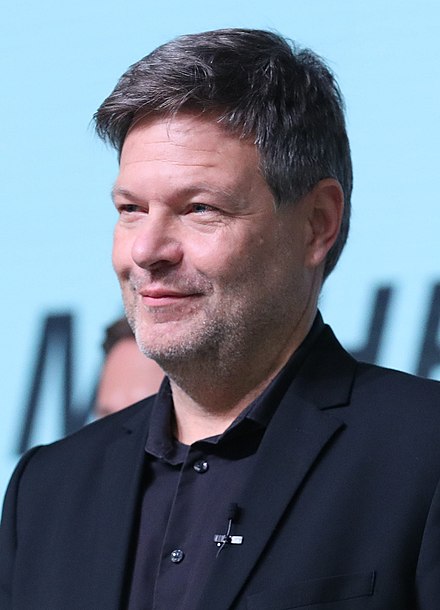METRO
Germany must not become a party to Ukraine war – Vice chancellor

German Vice Chancellor Robert Habeck has once again pointed out the limits of German involvement with regards to support for Ukraine.
He told Deutschlandfunk German public radio on Wednesday that “we must not become a party to the war. It is important that this boundary is always maintained”.
Habeck said this plays a major role in all considerations of support for Ukraine, Habeck said before returning from his two-day visit to Kiev.
“It is always a consideration where a step might go so far as to actively involve us in the war”.
Habeck, who is also Germany’s economy minister, said he personally drew a red line, “having German troops in Ukraine”.
The Green politician and also Chancellor Olaf Scholz have already stated several times that Germany should not become a party to the war.
Habeck travelled on Monday morning with a German business delegation to Ukraine, where he also met government representatives.
Topics of the trip were the reconstruction of Ukraine, which is still under attack from Russia,
and cooperation in the energy sector.
Habeck also talked about a stronger presence of German companies in the war-torn country.
In order to make it attractive or even possible for German companies to work in Ukraine under these conditions, the German government is securing their investments.
The risk of this must be weighed against the perspective of hope, which Ukraine needs, Habeck told Deutschlandfunk.
“Besides the strong will to rebuild and, I think, the impressive courage of the people to look forward, the country has also suffered incredibly”. Support for the country was justified and necessary, he added.
Meanwhile, the issue of alleged child abductions by Russia continues to cause outrage in Ukraine.
According to the government in Kiev, at her recent press conference, Russian Children’s Rights Commissioner Maria Lvova-Belova admitted to another “kidnapping” of a Ukrainian teenager.
Dmytro Lubinets, wrote on Telegram on Tuesday evening that “this story is the next public confession of war crimes the abduction of Ukrainian children!” the Ukrainian parliament’s human rights commissioner.
He said the case involved a 17-year-old boy who was taken from Russian-occupied Mariupol in the Donetsk region to a foster family in Russia. ”Yet the child has a sister in Ukraine!” stressed Lubinets.
Moreover, the boy had been prevented from returning home to Ukraine on his own. After reaching Belarus, the teenager was arrested and brought back to Russia.
Since shortly after the beginning of the Russian war against Ukraine, Kiev has accused Moscow of “deporting” Ukrainian children.
Most recently, Kiev spoke of 19,514 children affected, 4,390 of them orphans. Moscow denies this and speaks instead of evacuations.
The International Criminal Court in The Hague recently issued an arrest warrant for Lvova-Belova as well as for Russian President Vladimir Putin, accusing them of “abducting” children.
At her press conference in Moscow on Tuesday, Lvova-Belova denied the accusations and referred to the possibility of filing a search complaint with her authorities.
Russia launched a full-scale invasion of Ukraine more than 13 months ago and occupies parts of the country’s territory.
Many boys and girls have lost their parents as a result of Russia’s war. Thousands are on the run.
However, the British Ministry of Defence (MoD) said in a brief report on Wednesday that the Russian leadership is preparing for financial aid from allied states, probably by issuing government bonds in foreign currencies as a measure to plug holes in its own budget.
In this interpretation, the British refer to a recent announcement by Russian Prime Minister Mikhail Mishustin, who had talked about plans to issue bonds in the Chinese yuan, among other currencies.
This is almost certainly an indication that Moscow is counting on money from states it regards as benevolent, the MoD said.
In such a scenario, foreign investors could then make up for future deficits in the Russian budget and thus indirectly help finance the war in Ukraine.
However, it was unclear whether Moscow could successfully implement the issuance of government bonds in foreign currencies, London said.




 Davido's Net Worth & Lifestyle
Davido's Net Worth & Lifestyle 
